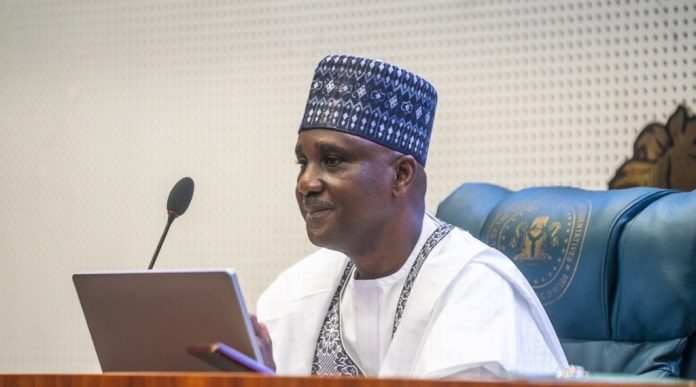The Speaker of the House of Representatives, Tajudeen Abbas, on Thursday said governments, businesses, civil society organizations and individuals must take action against climate change.
Abbas noted that while systemic changes driven by governments and large corporations are essential for impactful mitigation, individual actions have a multifaceted importance in addressing the climate crisis.
Addressing the forum on Lifestyle for Environment (LiFE) at the ongoing 9th P20 Summit and G20 Parliamentary Forum organized by the Parliament of India in collaboration with the Inter-Parliamentary Union (IPU), in New Delhi India, Abbas said Nigeria, Africa’s most populous and diverse nation, faces specific challenges due to climate change.
He said, “Climate change impacts developing countries in various ways due to their greater vulnerabilities and lesser capacities to adapt. In the northern part of the country (Nigeria), increasing desertification has negatively affected farming, while unpredictable rainfall patterns have affected crop yields in the southern parts.
“A direct consequence of this is an economic strain, given that agriculture is a significant sector of Nigeria’s economy. Coastal areas, especially around the Niger Delta, face an increased risk of flooding due to rising sea levels and changing rainfall patterns.
“More so, Nigeria relies on hydroelectric power for a significant portion of its electricity, and variability in river flows often affects energy availability. Given these challenges, it is crucial for Nigeria, as with many developing countries, to address mitigation (reducing greenhouse gas emissions) and adaptation.”
He further stated that parliamentarians could allocate funds for climate change mitigation and adaptation efforts during the budget process, and hold governments accountable by effectively utilising the wide range of oversight tools and powers available to them.
“The 10th House of Representatives Committee on Renewable Energy oversees national strategies to counter the effects of climate change and ensure that laws pertaining to all aspects of climate change are adequate and implemented effectively.
”Nigeria is committed to transitioning from fossil-based energy to renewable energy sources such as wind, solar and hydropower to ensure sustainability,” the Speaker added.
Share your story or advertise with us: Whatsapp: +2347068606071 Email: info@newspotng.com















